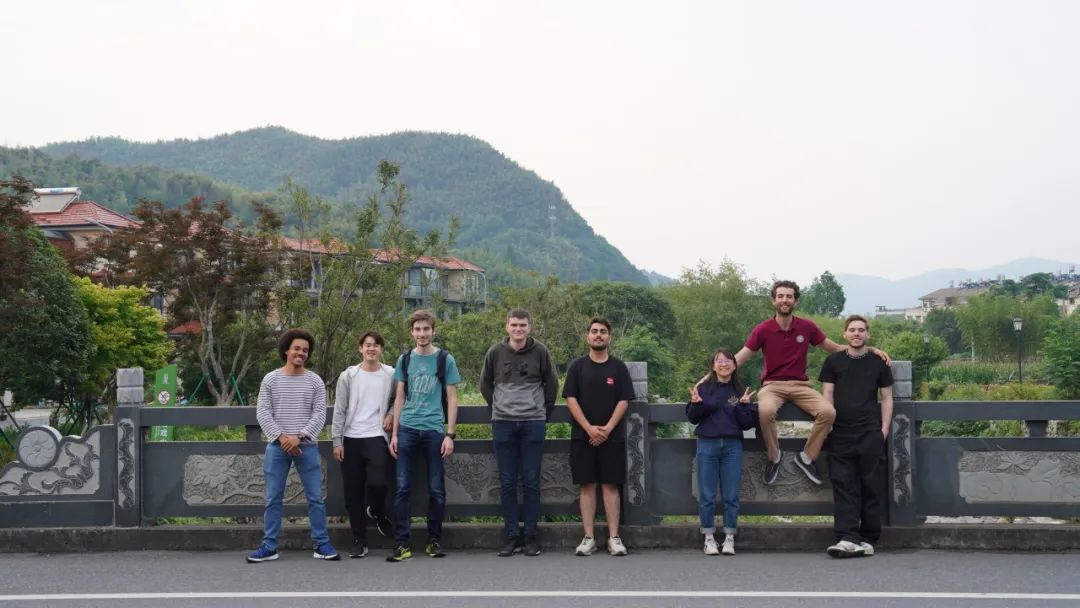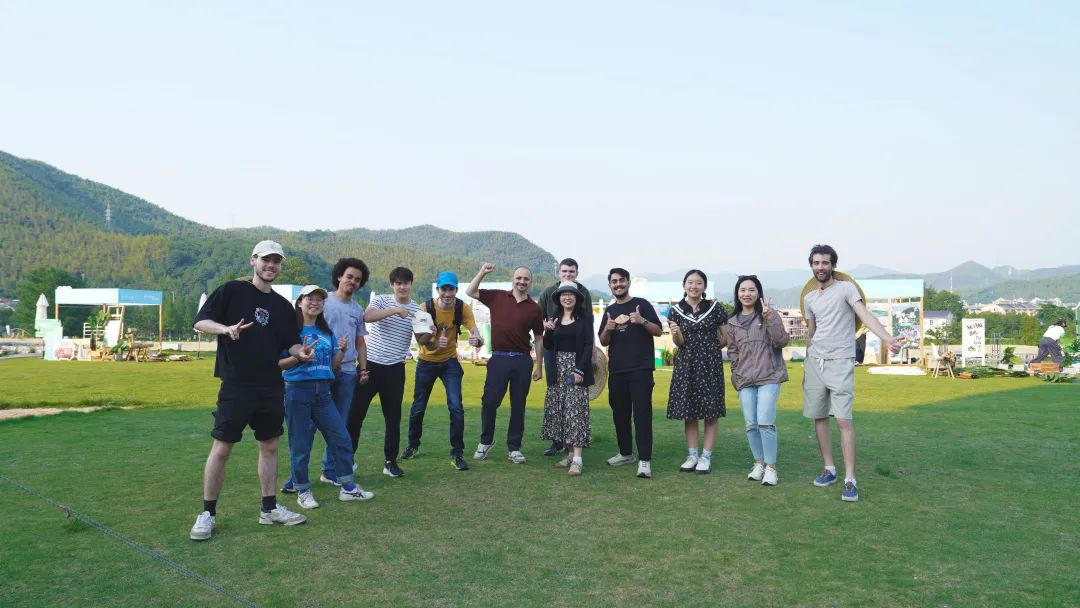From May 25 to 26, students and faculty from the École des Ponts ParisTech set out on a two-day visit to Yucun Village in Anji, Zhejiang Province—widely recognized as a model for sustainable rural development in China. Once a mining village, Yucun has become a national symbol of how environmental protection and economic prosperity can go hand in hand. Invited to observe the 2025 Dayucun Youth Rural Development Recruitment Fair and the launch of the Bluebird Plan, the French delegation immersed themselves in the countryside and experienced firsthand the momentum behind China’s rural revitalization efforts.
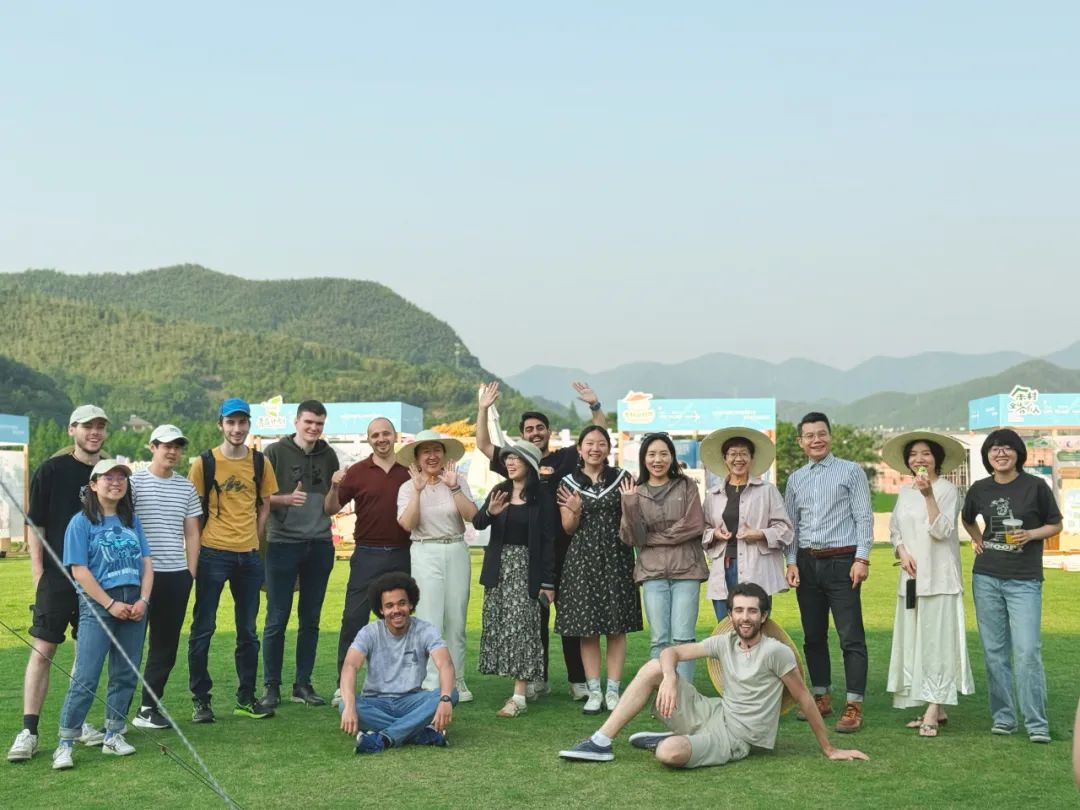
Day 1: From Visitors to “Cloud Villagers”
The journey began with a guided tour of Yucun, where participants became honorary “cloud villagers” and explored the village’s remarkable transformation.
Once dependent on mining, Yucun’s economy had severely damaged the environment. In 2005, then Zhejiang Party Secretary Xi Jinping visited the village and praised its decision to shut down polluting industries. During that visit, he introduced a new vision: that protecting the natural environment is just as important as pursuing economic growth. Since then, under the guidance of what came to be known as the “Two Mountains” principle, Yucun has steadily transformed from a polluted industrial village into a national model for sustainable development, demonstrating that ecological preservation, economic vitality, and community well-being can thrive together.
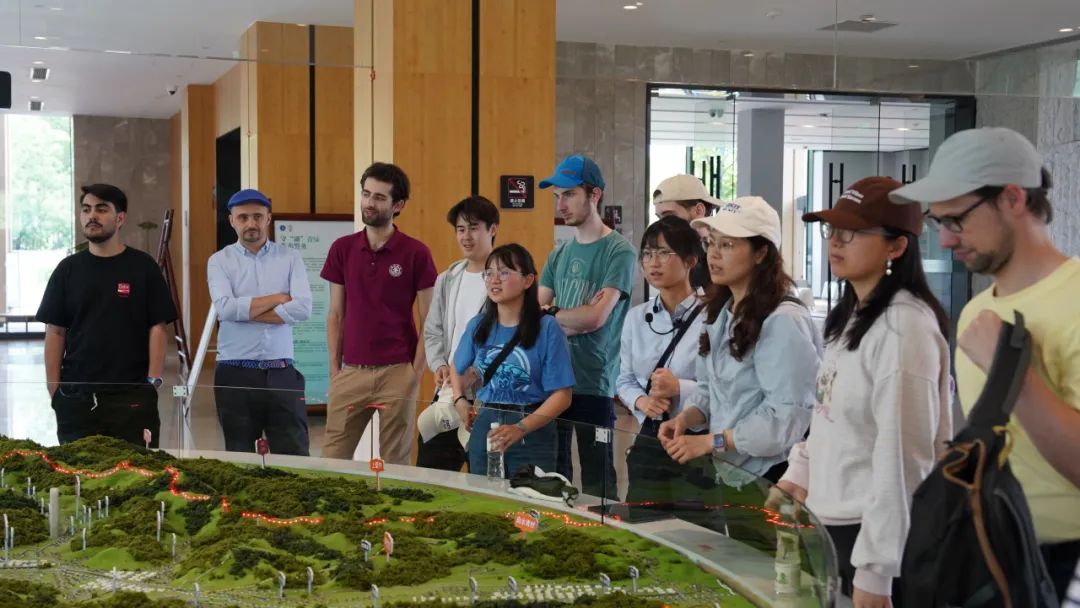
In front of the now-iconic stone tablet inscribed with the village’s guiding philosophy, the group paused for a photo—a moment that marked not just the beginning of their journey, but also a cross-cultural exchange centered on ecological values and shared hopes for the future.
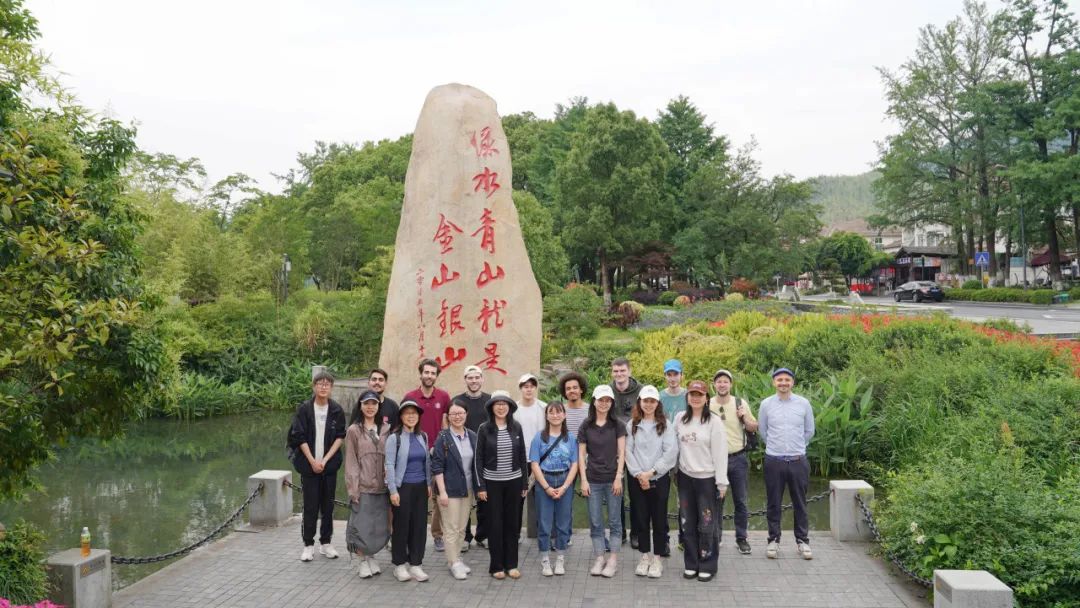
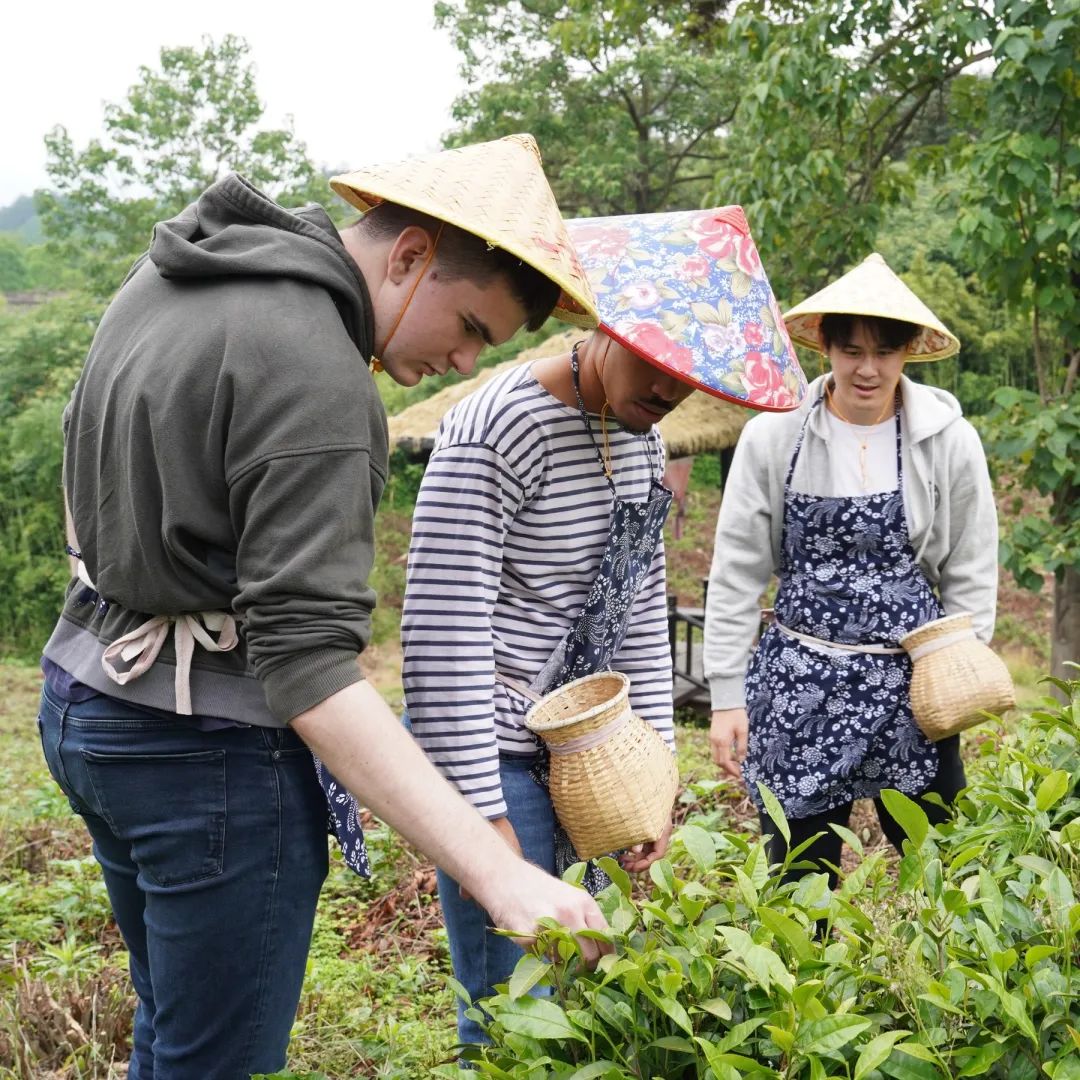
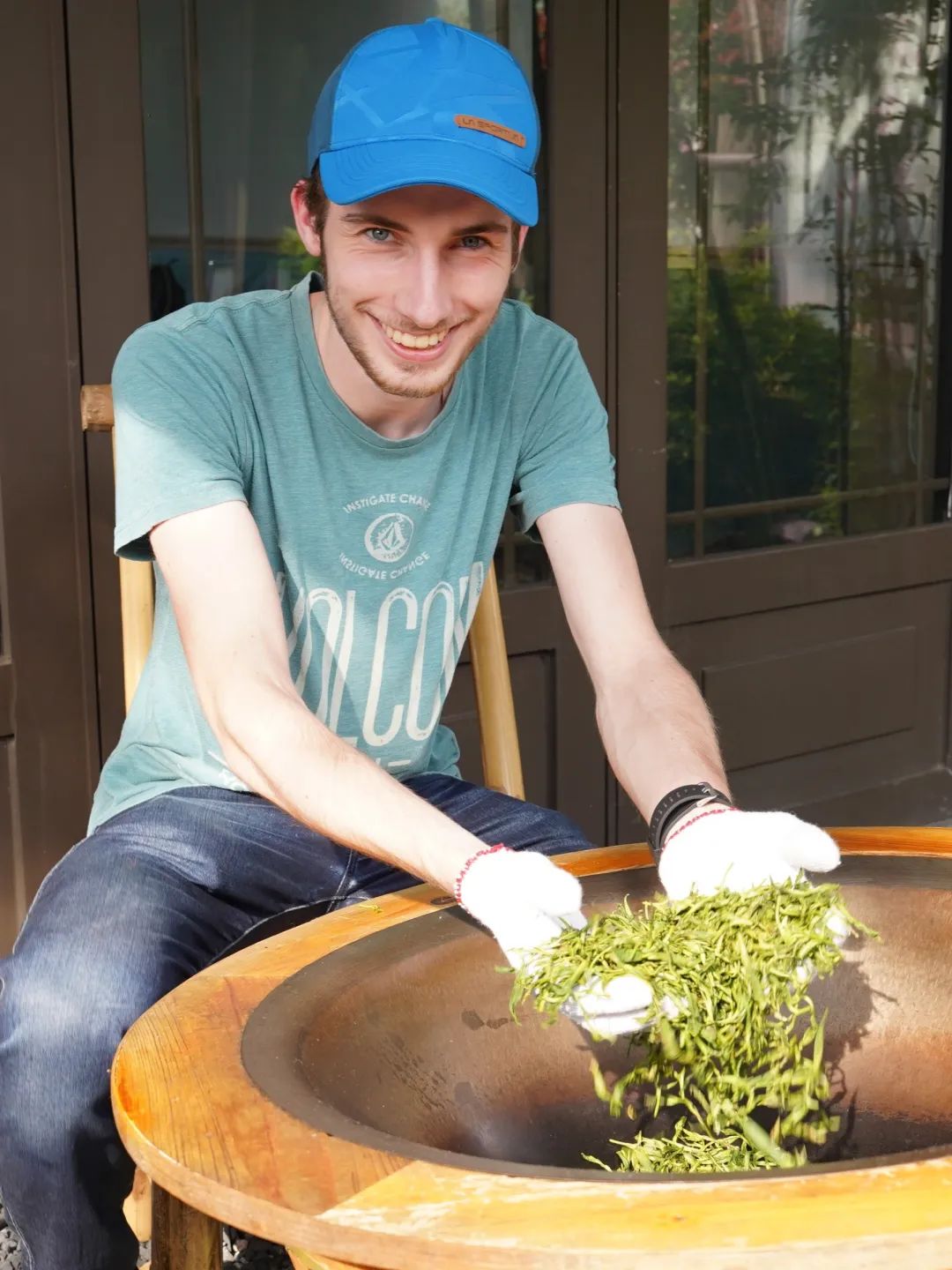
The visit also offered a taste of Yucun’s signature industry: white tea. With assistance from locals, French students ventured into the bamboo-lined tea gardens to pick fresh leaves and try their hand at traditional tea frying. Surrounded by mountain views and the soothing aroma of tea, they experienced firsthand the beauty of rural labor and the joy of connecting with nature.
Day 2: Youth at the Heart of Rural Renewal
The second day marked the official launch of the 2025 Dayucun Youth Recruitment Fair and the Bluebird Plan. Set against a backdrop of rolling green hills, the ceremony signaled a new chapter—one where young people are encouraged to return to the countryside and help shape vibrant, thriving rural communities.
The French visitors listened attentively to presentations on China’s rural revitalization strategy and the Bluebird Plan, which supports young professionals through policy incentives, startup incubators, and integrated resource networks. They left with a clear impression: today’s Chinese countryside is not simply looking for talent; it is actively offering young people a safe space for growth, a strong sense of community, and real opportunities to make a meaningful difference.
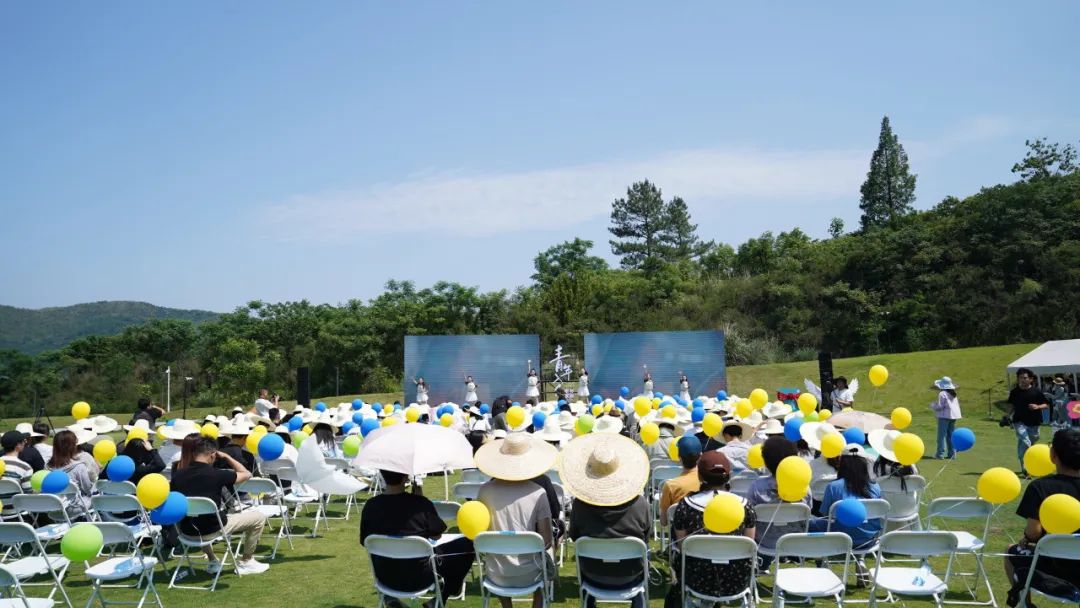
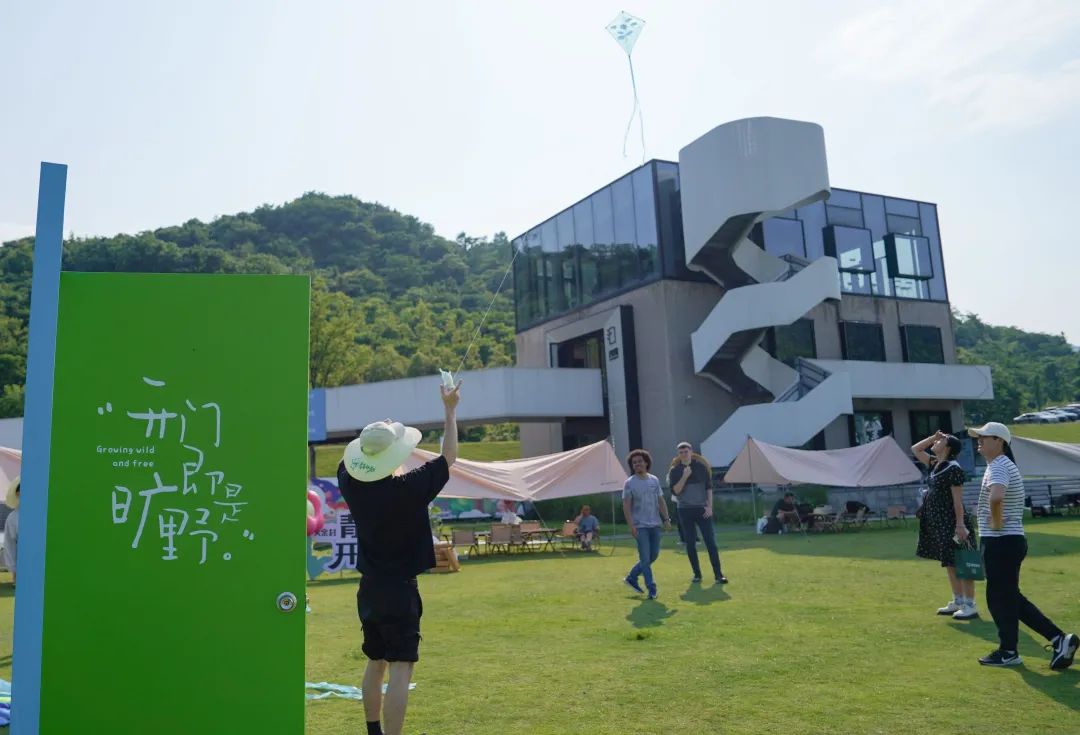
The day proceeded with a fun kite-flying activity, followed by a relaxing “Under the Tree” concert that brought everyone together through music and conversation.
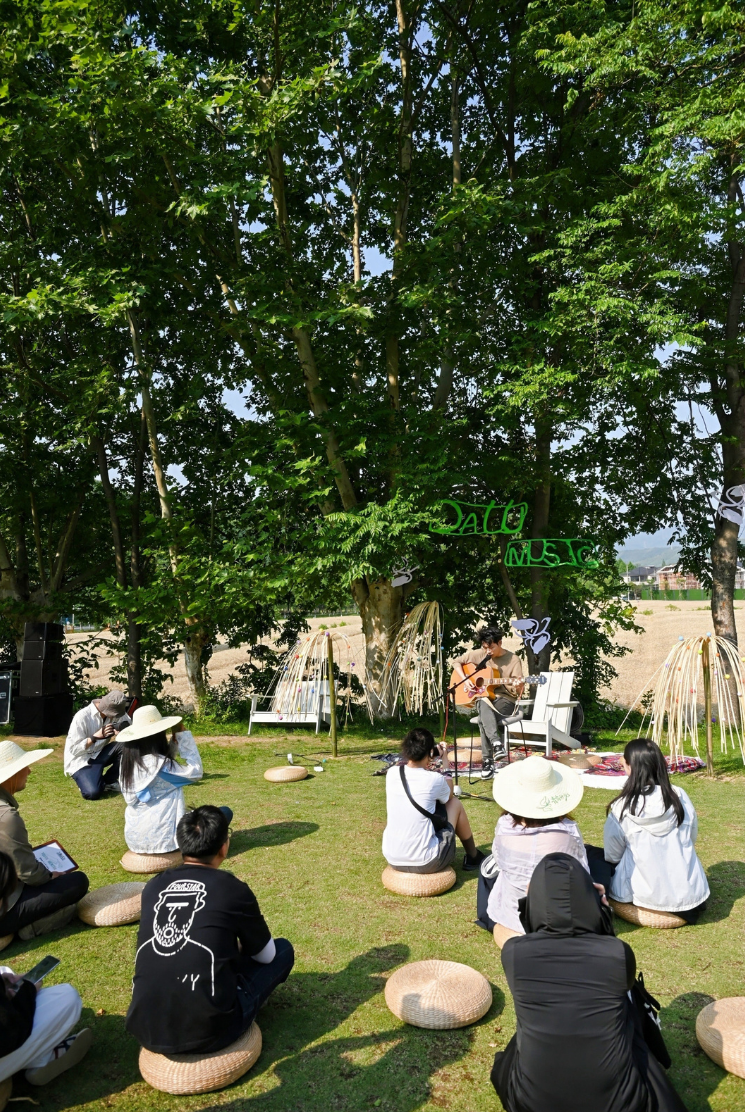
During the “Youth Open Mic” session, French and Chinese students sat in a circle to share their thoughts on the visit, exchange ideas on sustainability and the future, and find common ground through dialogue.
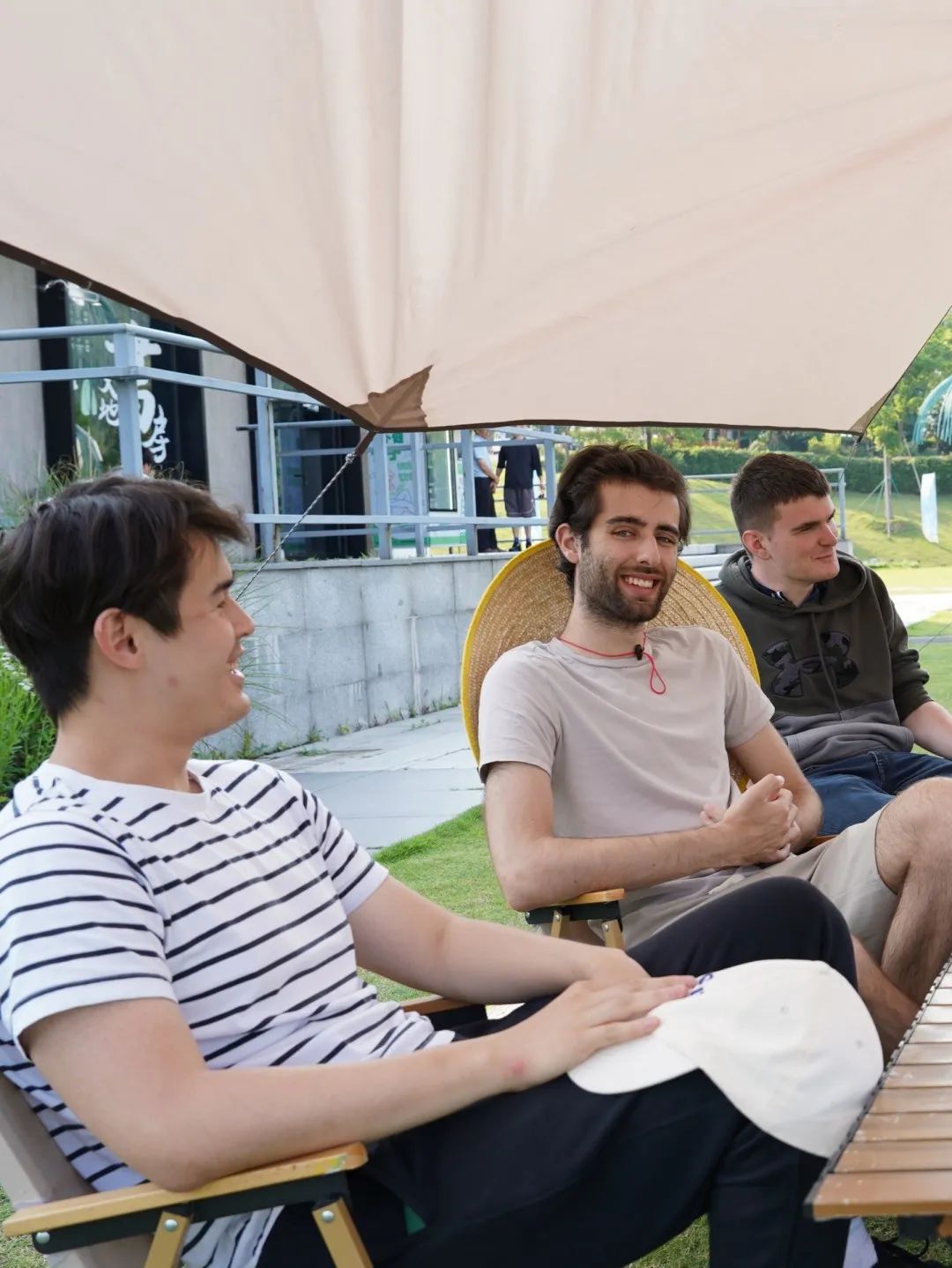
Reflections from Mathieu Huon (Paris, France)
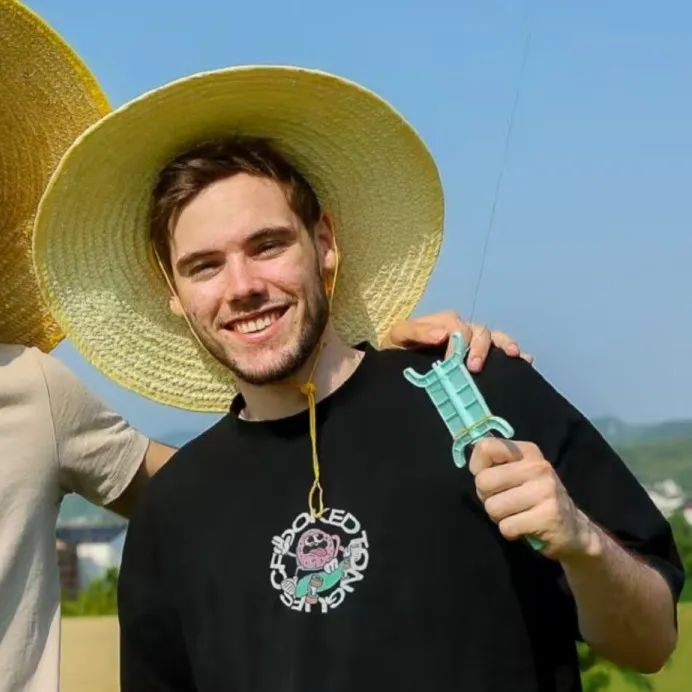
“This place feels completely different from the city life we’re used to. It’s a truly special experience,” said Mathieu Huon, a student from Paris. “France is very urban, especially Paris, where everything is built up and crowded. But here, it’s quieter, more intimate, and closely connected to nature.”
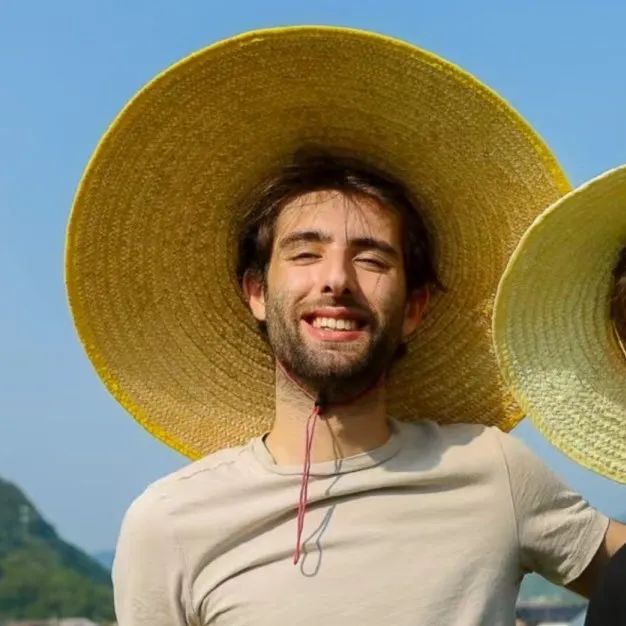
“What really impressed me was the startup incubator in the village. It’s encouraging to see this kind of support for young entrepreneurs in a rural setting. France has similar initiatives, but starting a business in such a natural environment feels more grounded and genuine. It gives young people a chance to step away from the fast pace of city life and take a break from the constant presence of the digital world. I think that kind of setting is especially helpful for creativity and innovation.”
